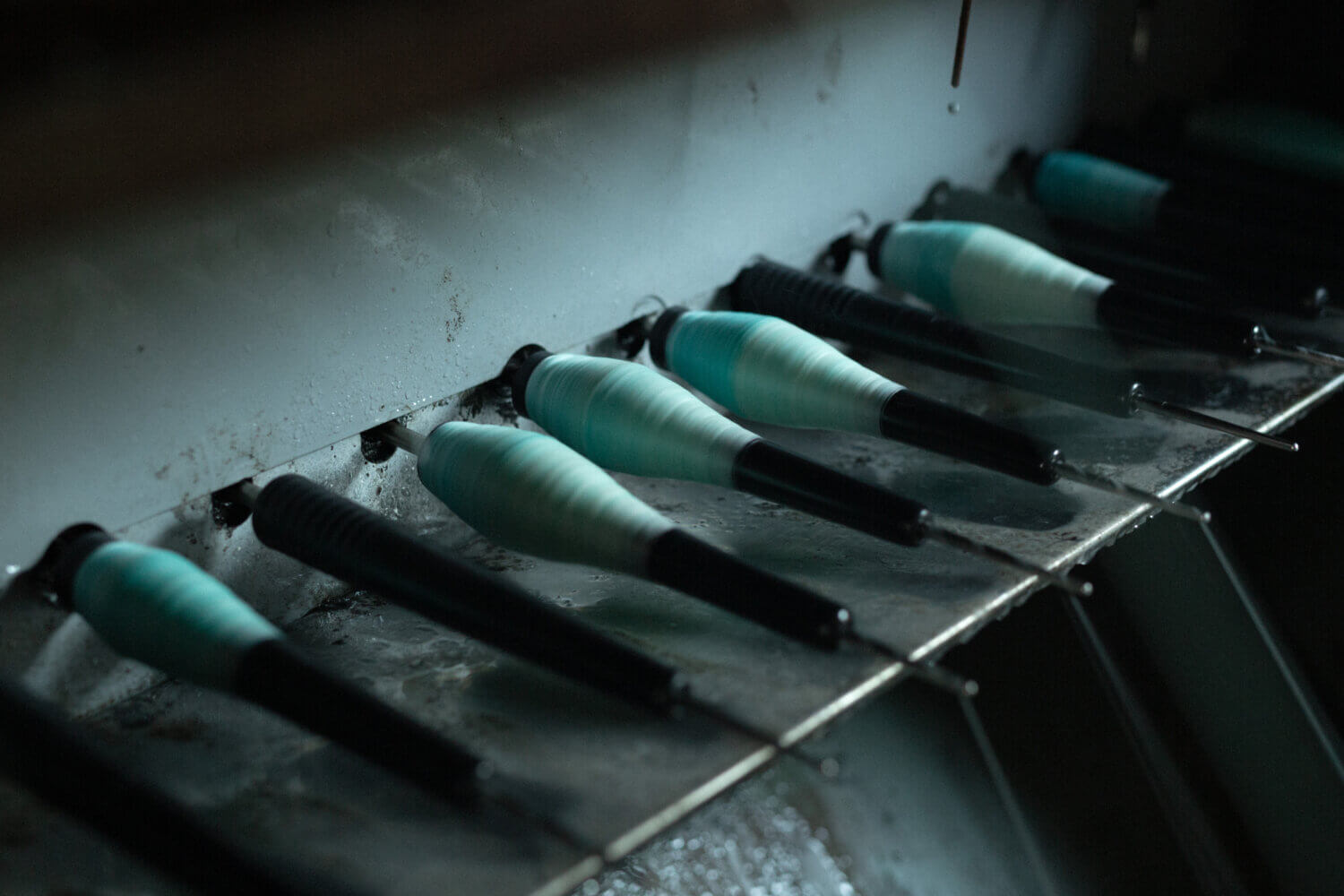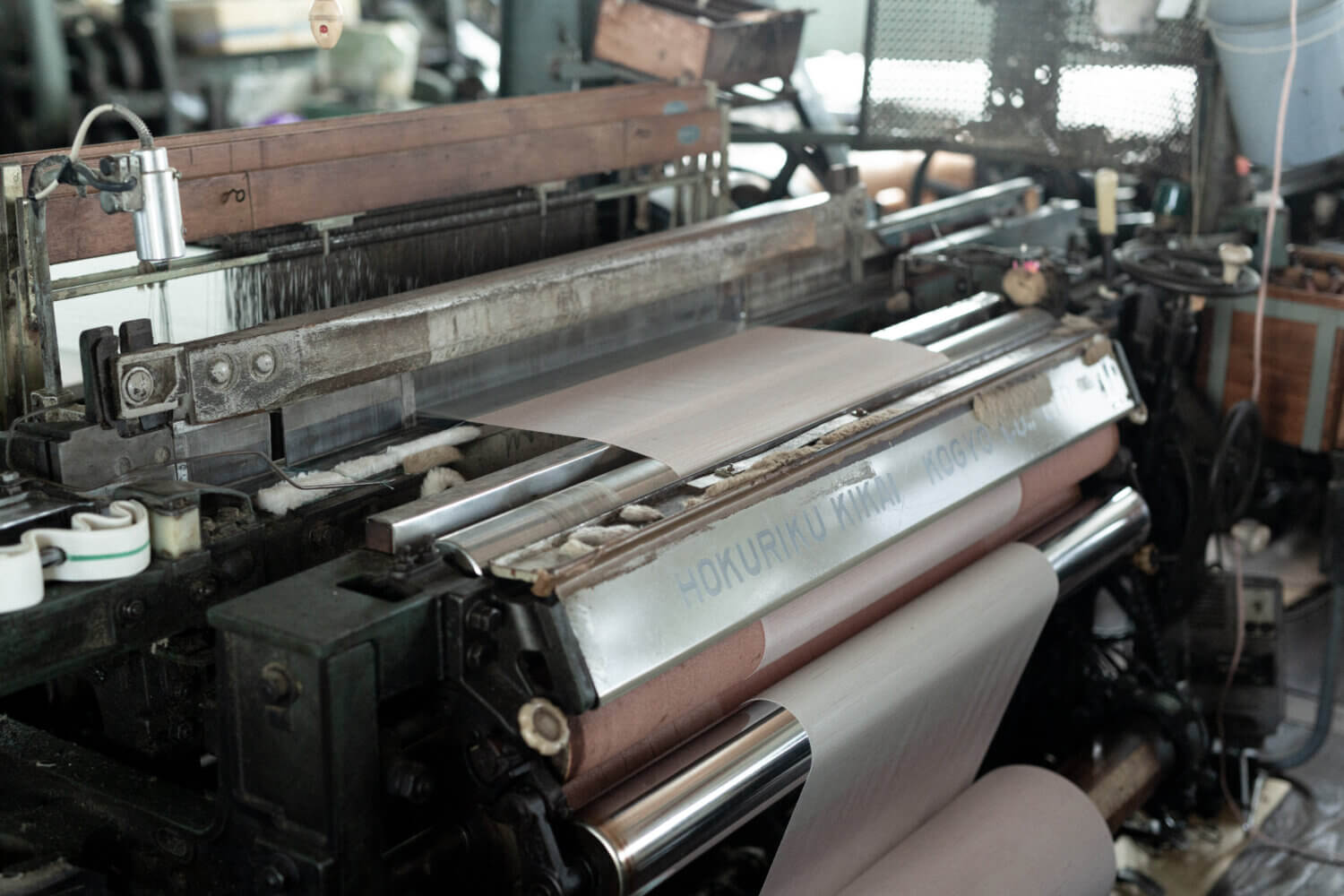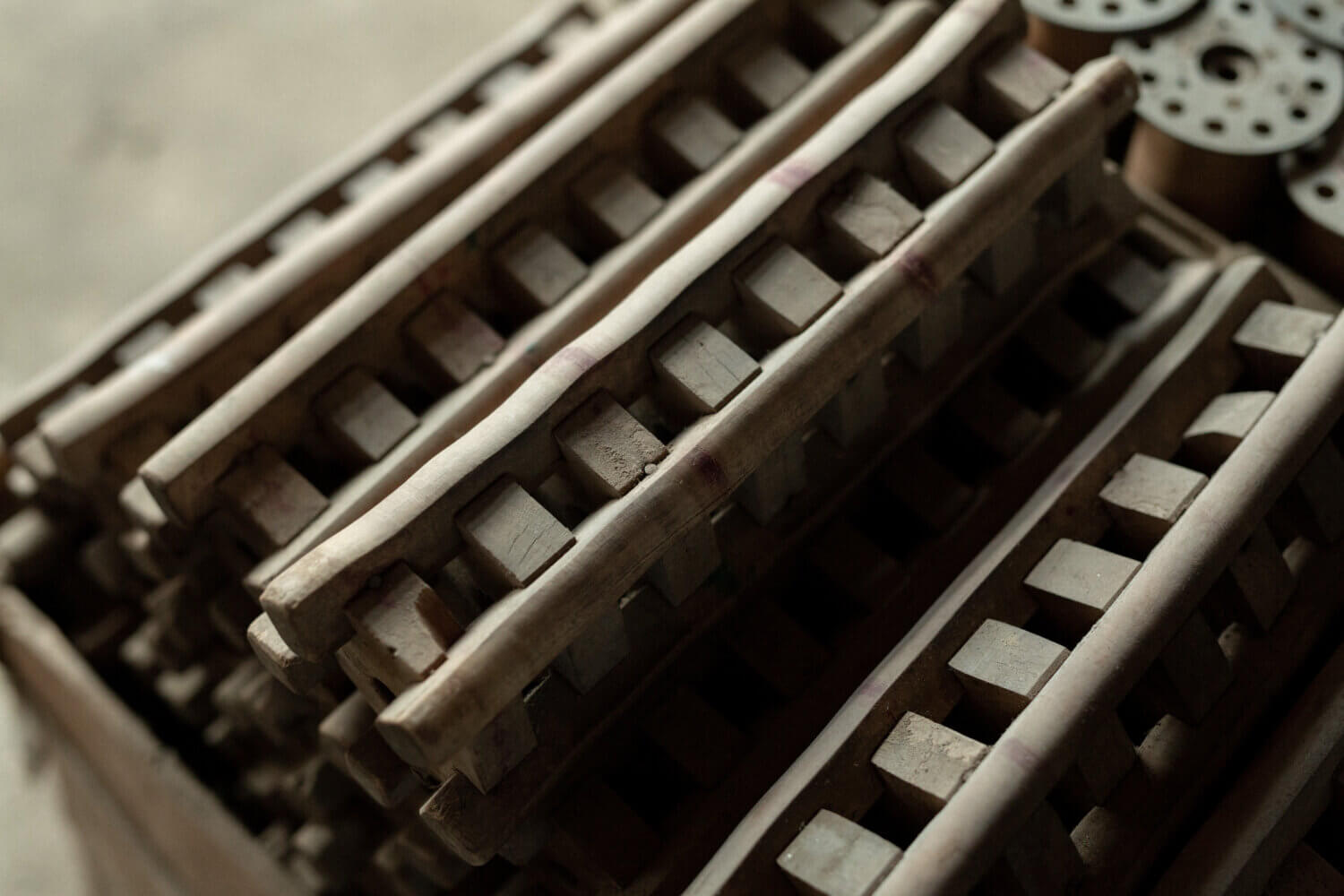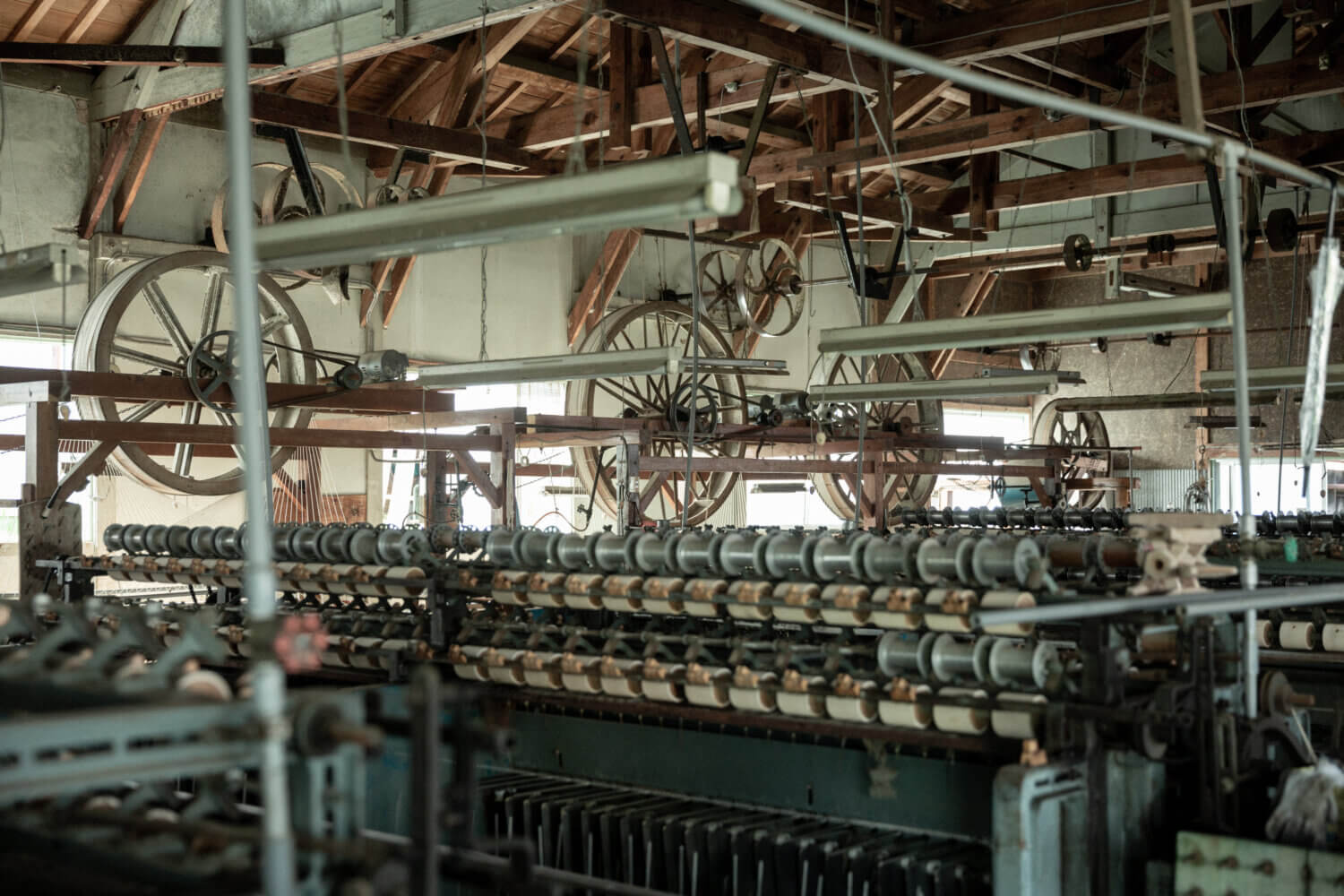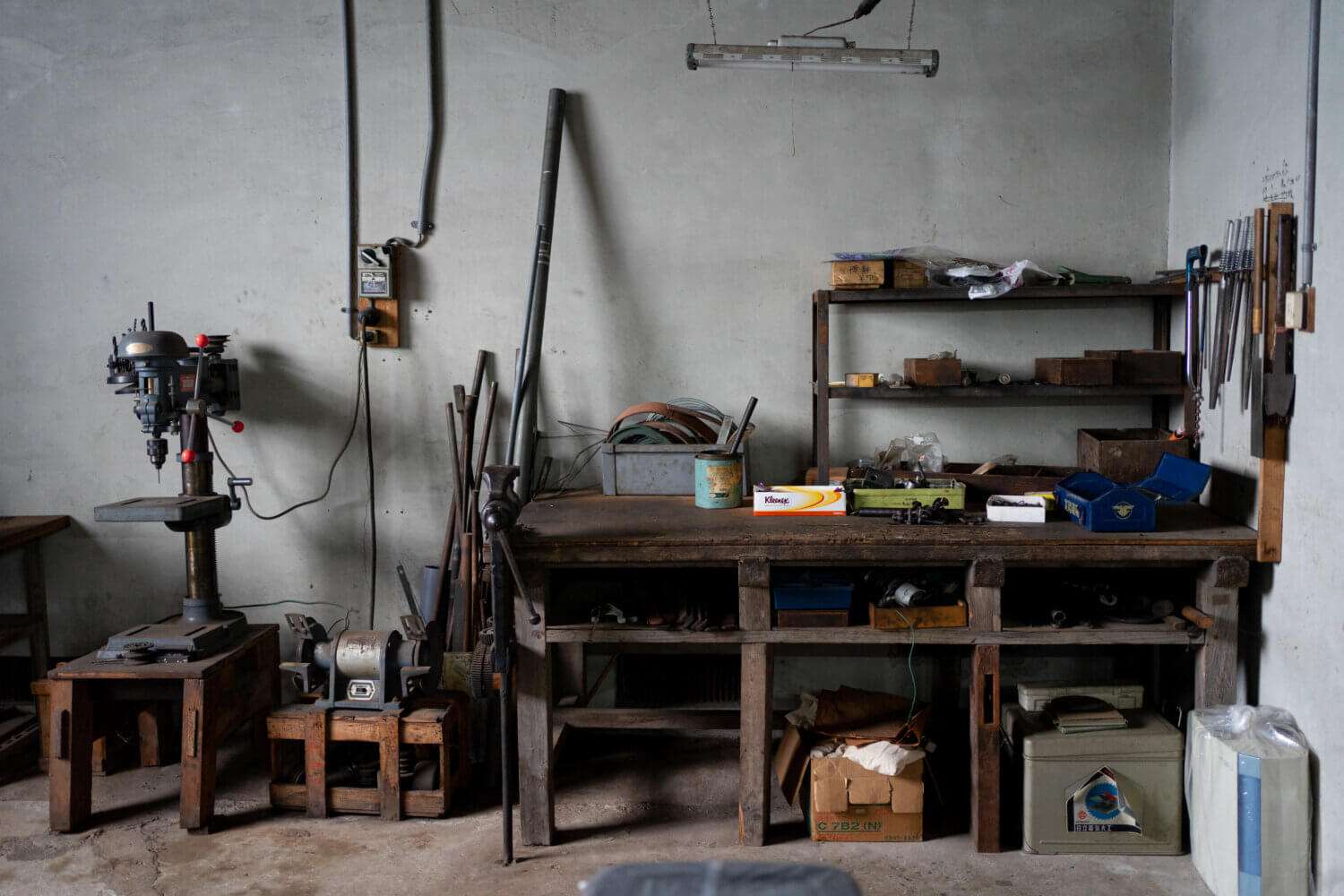ここは半分を閉ざされてきた土地だから、待つことには慣れている。この地で絹織物が作られ始めて1300年の間、辛抱強くいろんなことに耐えてきた。飢饉、大地震、戦争、バブル、リーマンショック。先代達の積み重ねた時間が、機場の土間にどっしりと踏み固められている。世界が次の扉を開けるまで、私たちは待つ。水を滴らせて、糸を撚りながら待とう。膨大なアーカイブを紐解いて、新しい生地を生み出しながら待とう。ソーシャルネットワークを開いて、海の向こうと交流しながら待とう。その先には必ず光があることを、この土地に生きる人たちは知っている。
People here are used to waiting because this is a land that has been half closed. In the 1300 years since silk fabric began to be made here, people have been patient through numerous circumstances — famine, earthquake, war, the bubble economy, the Lehman shock. And all the circumstances of our predecessors are firmly trodden into the dirt floor. Until the nextdoor opens, we will wait.
Waiting, as water drips and thread is spun. Waiting, while creating new fabrics or uncovering old patterns and designs. Waiting, while opening social networks and keeping in touch with people from over the oceans. Beyond that, there is a light — the people who live here know that.
